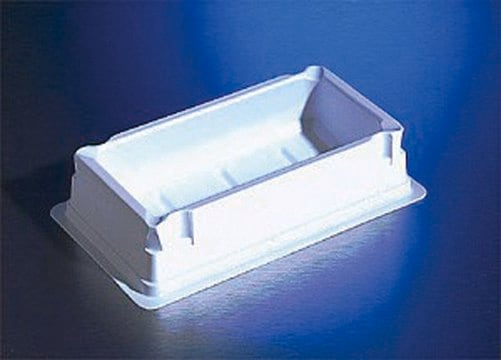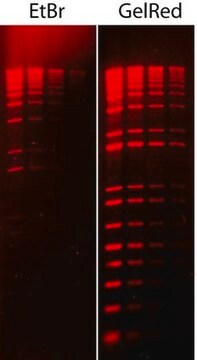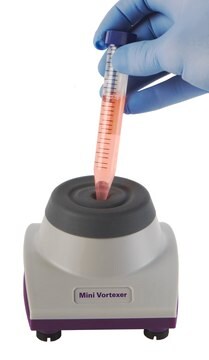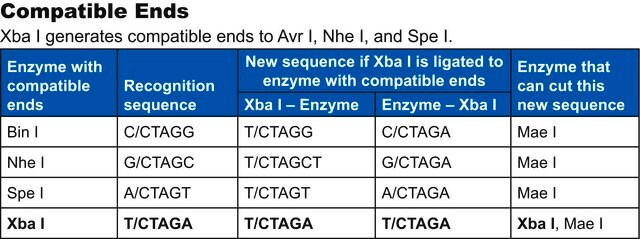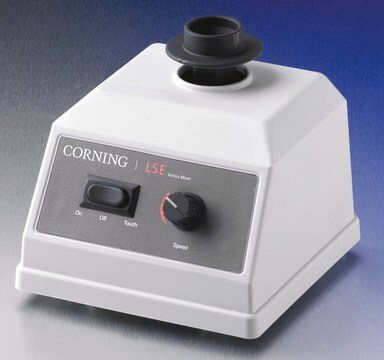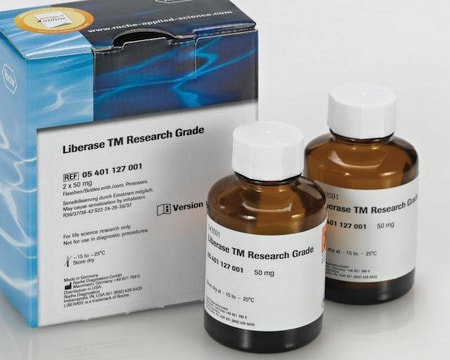Wichtige Dokumente
DPNI-RO
Roche
Dpn I
from Diplococcus pneumoniae
About This Item
Empfohlene Produkte
Biologische Quelle
bacterial (Diplococcus pneumoniae)
Qualitätsniveau
Form
solution
Verpackung
pkg of 1,000 U (10742988001 [10 U/μl])
pkg of 200 U (10742970001 [10 U/μl])
Hersteller/Markenname
Roche
Parameter
37 °C optimum reaction temp.
Lagertemp.
−20°C
Allgemeine Beschreibung
The enzyme is an isoschizomer to Bsp143 I, Dpn II, Mbo I, Nde II and Sau3A I.
Methylation sensitivity
The enzyme is only inhibited by the occurrence of 5-methylcytosine at the indicated site (*) if no 6-methyladenine is present.
Typical ligation and recutting assay
Dpn I fragments obtained by complete digestion of 1μg pBR322 DNA are ligated for 16 hours at +4°C with 1U T4 DNA Ligase in 10μl buffer that contains 66mM Tris-HCl, 5mM MgCl2, 5mM Dithiothreitol, 1mM ATP, pH 7.5 (at +20°C). The percentages of product that can be ligated and subsequently recut with Dpn I (yielding the typical pattern of pBR322 × Dpn I fragments) are stated under "Lig" and "Rec" in the certificate of analysis.
Spezifität
GmAT*C
Restriction site: GmA↓T*C
GmA↓T*C
Heat inactivation: No inactivation of Dpn I after incubation at 65 °C for 15 minutes.
Anwendung
Qualität
1μg pBR322 DNA is incubated for 16 hours in 50μl SuRE/Cut Buffer A with an excess of Dpn I. The number of enzyme units which do not change the enzyme-specific pattern is stated in the certificate of analysis.
Absence of exonuclease activity
Approximately 5μg [3H] labeled calf thymus DNA are incubated with 3μl Dpn I for 4 hours at +37°C in a total volume of 100μl 50mM Tris-HCl, 10mM MgCl2, 1mM Dithioerythritol, pH approximately 7.5. Under these conditions, no release of radioactivity is detectable, as stated in the certificate of analysis.
Kompatibilität
DNA-Profil
- λ: 116
- φX174: 0
- Ad2: 87
- M13mp7: 8
- pBR322: 22
- pBR328: 27
- pUC18: 15
- SV40: 8
Einheitendefinition
Hinweis zur Analyse
The buffer in bold is recommended for optimal activity
- A: 100%
- B: 75-100%
- H: 75-100%
- L: 50-75%
- M: 75-100%
Relative activity in PCR mix (Taq DNA Polymerase buffer) is 100%. The PCR mix contained λDNA, primers, 10 mM Tris-HCl (pH 8.3, 20 °C), 50 mM KCl, 1.5 mM MgCl2, 200 μM dNTPs, 2.5 U Taq DNA polymerase. The mix was subjected to 25 amplification cycles.Activity in reaction buffer of Pwo SuperYield DNA Polymerase PCR Mix is 100%; Pwo SuperYield DNA Polymerase PCR Mix is not available in U.S.
Sonstige Hinweise
Nur Kit-Komponenten
- Enzyme Solution
- SuRE/Cut Buffer A 10x concentrated
Lagerklassenschlüssel
12 - Non Combustible Liquids
WGK
WGK 1
Flammpunkt (°F)
does not flash
Flammpunkt (°C)
does not flash
Hier finden Sie alle aktuellen Versionen:
Besitzen Sie dieses Produkt bereits?
In der Dokumentenbibliothek finden Sie die Dokumentation zu den Produkten, die Sie kürzlich erworben haben.
Artikel
The term “Restriction enzyme” originated from the studies of Enterobacteria phage λ (lambda phage) in the laboratories of Werner Arber and Matthew Meselson.
Verwandter Inhalt
Restriction endonucleases popularly referred to as restriction enzymes, are ubiquitously present in prokaryotes. The function of restriction endonucleases is mainly protection against foreign genetic material especially against bacteriophage DNA.
Unser Team von Wissenschaftlern verfügt über Erfahrung in allen Forschungsbereichen einschließlich Life Science, Materialwissenschaften, chemischer Synthese, Chromatographie, Analytik und vielen mehr..
Setzen Sie sich mit dem technischen Dienst in Verbindung.